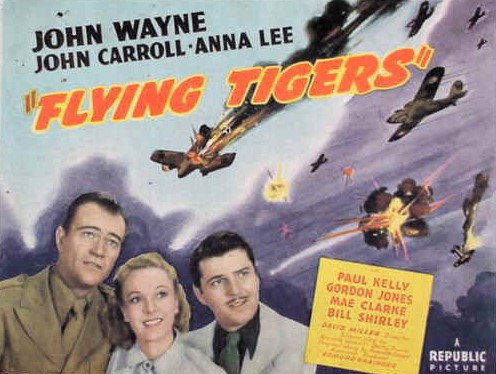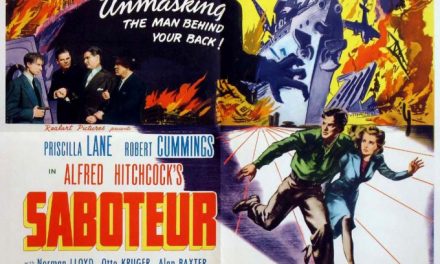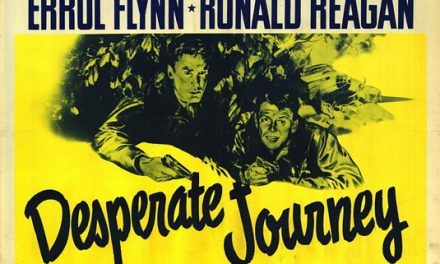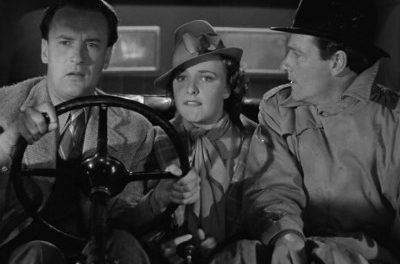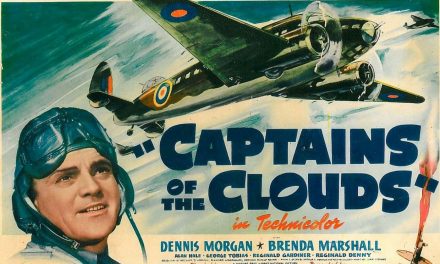The “Flying Tigers”, directed by David Miller and produced by Edmund Grainger, takes America into the heart of the battles of heroic volunteer fighter pilots through the eyes of Jim Gordon, who is played by the popular John Wayne. The film takes place in late 1941, and portrays the feats of the American Volunteer Group. Before the United States entered the war, the AVG was formed to fight the Japanese in China in the Second Sino-Japanese War. The first AVG was the called the Flying Tigers and was the only unit to actually see combat.
When Jim Gordon arrived in Rangoon in Burma, he was approached by Blackie Bales, played by Edmund MacDonald. In this film, the main character Gordon is portrayed as a levelheaded hero type; someone who people can look up to. This is a common representation of the “good soldier”, which is a fighter that knows what he is doing and what other men strive to be like in the war. The man Blackie Bales was the leader of the group called The Flying Tigers, which had been defending the Chinese people from Japanese attacks. Bales is a representation of the “damaged soldier”, which is a soldier that has a good heart but makes poor decision. In the movie, we hope that Gordon does some good for Bales. Bales begged Jim Gordon to join his fleet but Gordon remembered Bales’ unsavory history of drinking and making bad decisions for the soldiers he led. Bales once caused the death of another pilot because of his constant intoxication. Gordon was extremely reluctant to join the team under Bales’ leadership, but Blackie Bales’ wife Verna, played by Mae Clark, convinced Gordon that Blackie had changed his ways, so Gordon decided to help the team by enlisting. Gordon also recruits Alabama Smith, played by Gordon Jones, and Woody Jason, played by John Carroll.
Woody was known by most to be a spontaneous hothead. He was an old friend of Jim Gordon’s which is why he became interested in the Flying Tigers, but he made it clear that he does not care about the war effort or America’s part in it. He only cared about the money that the team would make for shooting down Japanese pilots. This quickly made him the most unpopular man on the team, as he ignored procedures and would jump into action without Jim’s approval. The viewer feels a strong sense of anger towards Woody; although the Japanese are the “bad guys”, men without American spirit and pride are also hated. Woody is a strong representation of the attitude that will lose this war, so the viewer hopes that Gordon can somehow show him how to be patriotic. Soon after Woody’s arrival, the Japanese raided the Flying Tigers’ base, and Woody, disobeying orders from Jim Gordon, took a P-40 fighter to defend the base. He did not realize that there was no ammo in it, causing him to be immediately shot down. He remained unharmed, but the plane was damaged beyond use in a time when they could not waste materials. This particular scene might strike a nerve with viewers because of the fact that every American is buying war bonds and donating scrap metal for the war effort. To see someone waste these materials in such a careless manner could be triggering.
As for Blackie Bales, the team forgave him for his past after they saw a true change in him. He stopped drinking and decided to put his all in the war effort. This is one of the changes in character that the audience will hope for. One night, The Flying Tigers had to take to the air to fight off Japanese troops after they bombed the base. Blackie and Woody were flying together and their plane was one of the first ones to be hit. Blackie was forced to jump from the plane and surrender. Instead of protecting his cohort, Woody focused on the money that would come from shooting down a different Japanese plane, which resulted in Blackie’s death. At this point, the viewer feels a strong hatred towards Woody. Americans are supposed to protect Americans and Woody failed to protect a reformed soldier because of his own greed and selfishness.
Woody claimed that there was absolutely nothing he could do to prevent Blackie’s death, so Jim let him stay on, but the final straw came when Woody caused yet another death in the squad. Jim Gordon’s right-hand man Hap Davis, played by Paul Kelly, took Woody’s place in the night watch because Woody was out too late on a date with Jim Gordon’s girlfriend, Brooke Elliot (Anna Lee). Hap had been suspended from the battle from because of his damaged eyesight, so it was dangerous for him to take Woody’s place, which is why he wound up dying in a resulting dog fight—he was not able to judge distances correctly. At this point, Woody had caused the death of two respectable American soldiers.
Jim fired Woody immediately following Hap’s death, explaining that none of the men would ever fly with him again. As Woody was about to leave, the squad learned of the attack on Pearl Harbor, which brought America into the war. Soon after this event, Jim Gordon received the order that a vital bridge must be destroyed. The only way that this could be pulled off was to dangerously fly into the heavily guarded bridge at a low level with one other person; the mission was a suicide mission.
Jim Gordon volunteered for the mission, believing that he had no one left (Hap and Blackie were killed and he thought his girlfriend was in love with Woody). At the last second, Woody volunteered with him saying that he grew up and wanted to complete the mission with Jim. When they went in for the bombing, the airplane was hit by flak and caught fire. Woody was wounded, but hid the injury as he pushed Jim to jump out and crashed the plane into an on-coming supplies train, and sacrificed himself in the process. This is a surprising moment for the viewer, as no one truly believed that Woody was reformed. It would have been more likely that Woody saved himself and let Gordon die, but he did the American thing and died for his country.
In a heartfelt ending, Jim and Brooke, who was never in love with Woody, read the letter that Woody left. He asked that his lucky scarf be given to a worthy pilot, and Jim gives it to his new wingman, saying, “take good care of it…it belonged to a pretty good flyer.”
We need more films like “Flying Tigers.” This film not only shows the flaws in humanity and the ability to forgive someone, but also portrays the true patriotism and spirit of America. In the scene in which Jim Gordon volunteers himself for a suicide mission, the audience can feel a true connection to the soldiers that are fighting for our country. The mothers and fathers in the audience see what their sons are going through and get a sense of the pure courage that they have in the name of freedom. This movie is very effective in portraying fighting scenes and evoking the empathy of the American people. There are not many photographs shown of battles in the newspapers as to not scare Americans with the horrors of war, but this movie captures the fighting scenes in an accurate manner.
When one watches this film, a swell of pride forms in your heart for the troops that are currently risking their lives for the well-being of the United States of America. John Wayne’s portrayal of the leader of the famous Flying Tigers makes you want to send your son into the army so he can be as great of a man and a leader. Overall, give the film a watch, you will get a resurgence of that great American pride.

